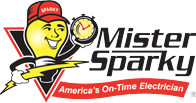
Electrical Contractors: 5 Factors to Consider When Choosing Safety Switches | Myrtle Beach, SC
Photo By gorica at istock
Regardless of whether you own a residential or commercial property, you’ll need to make sure that there are safety switches installed. Our electrical contractors can go around to make sure that the right safety switch is chosen for each circumstance, as not all safety switches are built the same. They all have unique features based on various different factors. We’ll take a look at 5 of them in this article!
#1. The Amp
As mentioned above all safety switches are built the same. When you’re looking to install a safety switch, your electrical contractors will need to consider the amp of the safety switch.
There are generally several different options to choose from. They include 30A, 60A, 180A, 200K, 400A. 68K and 80A. The amount of amps that is needed for your property will largely depend on the amount of power that your home needs. This can be affected by whether any electronic devices, appliances or equipment are being used at the moment. Basically, if your circuits require less electricity, it’ll also require a low amperage safety switch. The opposite will also be true. If your circuits require a lot of electricity, you’ll want to go with a high amperage safety switch.
#2. The Volts
The voltage rating of a safety switch determines the maximum amount of voltage that the switch can handle. The footage requirement that is needed will usually depend upon the circuit. In general, there are two different types of voltages to choose from: 250 V or 600 V.
If there will be a lot of electricity-consuming equipment within the circuit, then a 600 V safety switch may be needed. However, if you were just using the safety switch for regular uses, a 250 V switch will usually be more than enough. With that said, if you will be using a lot of high energy equipment at your residential building, you may want to opt for a 600 V safety switch. However, if you do choose to do so, you will need to include this in your permit.
#3. Single or Three-Phases
Another thing that you can consider when choosing a safety switch is whether you want a single phase switch or a three phase switch. If you are using the safety switch in residential properties, then a single phase switch will usually be more than enough. However, in commercial establishments, you will usually need a three phase safety switch.
Make sure that you read the specifications of each switch before making a decision on what may or may not work best for you. If you are uncomfortable with reading the specifications of the switch, make sure that you discuss the abilities of the safety switch with electrical contractors in Myrtle Beach, SC before making a decision. You definitely want to make sure that you choose the right phase, as an inappropriate phase will not be able to handle the job.
#4. Fused or Non-Fused
Another common terminology that you have here when talking about safety switches is fused or non-fused. A fused or fusible safety switch will usually be much more convenient to use. They provide protection against overcurrent.
Switches that are not associated with any fuses are called non-fused safety switches. These safety switches are not as recommended by electrical contractors anymore because they do not offer any protection against overcurrent. With that said, the switches may be a bit easier to install and may also be a little bit cheaper. However, without the overcurrent protection. This type of safety switch may not be as convenient as a fused safety switch. It also may not be as versatile.
#5. NEMA Rating
You’ll hear your electrical contractors talk about NEMA ratings very often. But, what does NEMA mean?
NEMA stands for National Electrical Manufacturers Association. This rating defines certain standards that are used all across North America for various grades and types of electrical enclosures. The rating describes the type of protection that the electrical enclosures are able to provide. When it comes to safety switches, you’ll usually have the following options to choose from:
- NEMA 1 inclusions are usually highly recommended for indoor use. They are able to provide protection from any contact with live equipment.
- NEMA 3R are highly recommended for outdoor usage as they are able to provide a higher degree of protection against electrical faults than NEMA 1 inclusions. The safety switches are able to offer protection against external elements, like rain, sleet or even ice.
- NEMA 4/4X I highly recommend it for both outdoor and indoor use. These safety switches 10 to be the most versatile. The enclosures protect the circuits from external damage. This includes damage due to rain, splashing, ice or even hose water. There is a difference between 4 and 4X. 4X enclosures provide protection against corrosion.
- NEMA 5/12 protects against airborne or circulating dirt. They can also protect against stripping, non-corrosive liquids and even falling.
If you’re not sure which NEMA rating will be best for your purposes, you may need to discuss some details with the electrical contractors. Our licensed contractors will be able to walk you through the pros and cons of each type of safety switch, so you can make a more informed purchasing decision.
Give Us a Call to Learn More About Safety Switches
Are you interested in learning more about safety switches? Do you own a residential or commercial property in Myrtle Beach, SC and need to learn more about the electric work on your property?
If you’ve answered yes to any other questions above, give us a call to speak to one of our electrical contractors here at Mister Sparky of Myrtle Beach. Our licensed electrical contractors can help answer any questions that may be on your mind. They can also help guide you through the entire process, so you feel more confident about your purchasing decision.
What are you waiting for? Give Mister Sparky of Myrtle Beach a call today at 843.894.0901. Or, you learn more about safety switches. Our electrical contractors would love to have a talk with you.

